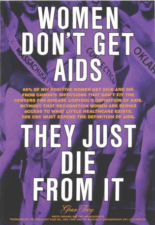WHN Admin.
Marge Piercy’s novel Gone To Soldiers (1988) about women and the second world war includes an account of a woman ferry pilot that provides an additional perspective on the work they undertook and their experiences. Fiction, of course, but nevertheless an insight into some of the less palatable aspects of women’s experience in moving from a domestic to a public role during war time. Piercy introduces Bernice who, rather than ‘keeping the home fires burning’ chooses public work which is linked exclusively to male activity in a war time environment. Not only does Piercy depict a woman moving into such an environment but designates it an adventure, a mystery, rather exciting in the title she uses to introduce Bernice: ‘Bernice and the Pirates’.

Bernice most often considers herself ‘Bernice-Professor Coates’s daughter’ or ‘Poor Bernice’ ‘Poor Motherless Bernice’ (p.44) She is a large ‘plain sensible girl who initially does keep the home fires burning for her father and brother – but this is in peace time and the war allows her to almost live the fantasy she has of flying ‘into the pacific and [rescuing] Amelia Earhart from an unmapped island’ (p.45). Bringing a dramatic change to her circumstances is Jacqueline Cochran who is enlisting women with the pilot credentials and flying experience into the Women’s Flying Training Detachment. Bernice has notched up credentials and experience, largely through a friend of her brother’s and, eventually, hers. Throughout the novel she relies on him, initially for flying lessons, then for sex, and eventually for the credentials to be identified as male so that she and her woman partner can own a flying school and teach: available to male pilots but not to woman after the war, whatever their experience.
However, it is a woman whose initiative helps Bernice build on her flying lessons and she becomes one of the WASP pilots: a fictional image of those telling their stories in Rickman’s WASP of The Ferry Command. Her fictional account, with research based largely on Sally Van Wagenen Keil’s Those Wonderful Women In Their Flying Machines, makes a contribution to further reading about these magnificent women.
Bernice’s story begins in a domestic setting, devised to demonstrate the claustrophobia experienced by a woman whose life is attendance on a misogynist father for whom she keeps house after her mother’s death, and her brother who has all the freedom she desires. Viola, Bernice’s mother, is portrayed as an intelligent, well-educated and well-read woman – surprisingly this was acceptable in his wife, but for the Professor (as his children refer to him) unacceptable in a daughter whose duty he sees as caring for the bereaved widower. His comfort is paramount, and when Bernice escapes, after a successful interview with Cochran, he refuses to write to her – until he marries his housekeeper and, for him ‘life as normal’ can proceed.
Unfazed by his disaffection and disapproval, Bernice begins training for her commercial licence – feeling fortunate that after being told that women could not fly for the Civil Air Control (particularly on the coast because of the fear of U Boats) the serious need for pilots gives her the opportunity to fly on a voluntary basis. As an aside, it is noted that while women students had been dismissed from the War Service Training Program, women instructors were retained . The Civil Air Control couriered documents, chemicals and plasma and Bernice undertakes this work as well as impersonating a bomber in an air raid and searching for downed military planes. [1]
Piercy compares the position for women pilots in America, the Soviet Union and England. Soviet women were flying in combat, English women pilots were ferrying planes regularly and American Bernice is not approved to even fly domestically in this period. Her appointment with Jaqueline Cochran, contrived with the help of a middle aged woman neighbour, brings Bernice closer to her aim. However, even in this context, being a woman has an impact on the way in which she must present herself. As Cochrane, as rendered in this account, says:
The public suspects women who fly planes of being racy and fast, chasing around a man’s world, as if skies could be anyone’s monopoly. I am as interested in the characters of my girls as I am in their flying experience. Any breath of scandal and we’ll lose an irreplaceable opportunity for women. [2]
This admonition is juxtaposed with the image of Bernice, far from ‘Poor Bernice’ but Bernice in her ‘zoot’ suit, the name the women gave their baggy GI overalls, with her ‘buddy Flo’ in the front of a plane. In a letter to her brother Bernice describes the way she lives – in a ‘tourist court with several other women [with] Army trucks pick[ing] them up before dawn and tak[ing] them to [the] airfield’. Tellingly, in the photo she sends ‘it is difficult to tell her age or sex, only that she looked enormous and joyful’ [3] Bernice has not only escaped the kitchen but almost fills the world in her new capacity. The next chapter about her entitled ‘Up, Up and Away’.
The male pilots maintain their distance – enforced by military discipline the women use facilities near the commercial airlines. Bernice passes all her weekly checks and graduates to a plane with a canopy, radio, and a powerful engine. The women’s classes include calisthenics, aerodynamics, engine operation and maintenance, mathematics, navigation and meteorology. On the negative side, they are directed not to fly for one day before their periods and two days afterwards: a rule difficult for the mainly male instructors and officers to enforce, but another way in which attempts were made to curtail women’s flying because of their gender.
On the positive side, Cochran opened an all-woman airfield in Sweetwater, Texas, to which the women pilots were able to transport their planes without interference. [4]
The general airfields are portrayed as being positive or negative experiences for women who landed their planes. Staff differed in their response to the WASP, just because they were women. However, it is suggested that negative reactions were tempered by those of friendly mechanics and other staff, but poorly serviced planes sometimes lead to accidents. Contrasting with these examples are the women’s satisfaction in flying a wide variety of planes which became increasingly powerful. The joy of flying fighters and increased confidence in their new skills and work were in conflict with the sexist reactions of hostile civilians, but Bernice always considers flying worth any humiliation. Her successful return to civilian life as a pilot can, however, only be gained by her taking on a male persona. Again, she considers her relationship and flying worth any cost.
Efforts to miltarise the WASPs so that they would benefit from their work after the war were unsuccessful so that when their war work ended women pilots, including Cochran were encouraged back into offices or the home. However, their stories, recounted in fiction by Piercy’s Gone To Soldiers , and in reality in Rickman’s Wasp of The Ferry Command maintain their place in history.
[1] Piercy, p. 268.
[2] Piercy, pp.332-333.
[3] Marge Piercy Gone To Soldiers (1988) Penguin London.
[4] Piercy, pp. 234-235.


